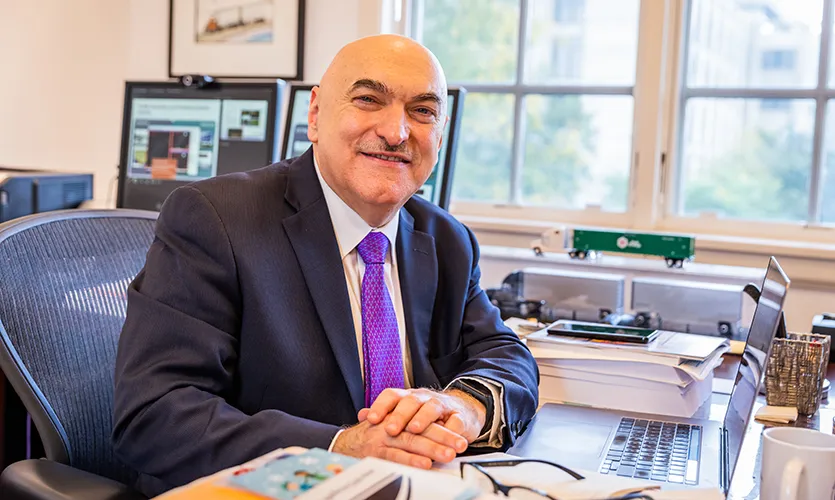The Mission Zero Corridor Project in West Georgia, US, believes that it is possible to have a ‘green highway’. To this end, it has appointed breakthrough innovation consultancy Innovia Technology to help create a ‘travel corridor’ and rethink the purpose and function of this infrastructure to generate social, environmental and economic value.
The project aims to be a fitting legacy for the late Ray C. Anderson, ‘the greenest CEO and founder of Interface, the global manufacturer of modular carpet.
A
August 10, 2015
Read time: 2 mins
The Mission Zero Corridor Project in West Georgia, US, believes that it is possible to have a ‘green highway’. To this end, it has appointed breakthrough innovation consultancy Innovia Technology to help create a ‘travel corridor’ and rethink the purpose and function of this infrastructure to generate social, environmental and economic value.
The project aims to be a fitting legacy for the late Ray C. Anderson, ‘the greenest CEO and founder of Interface, the global manufacturer of modular carpet.
Anderson developed the Mission Zero framework to eliminate Interface’s environmental impact while maintaining productivity and still turning a profit. The aim was a promise to “eliminate any negative impacts the company may have on the environment by 2020” and the framework created a blueprint for business sustainability.
As a memorial to Anderson, the Ray C Anderson Foundation is using a 16-mile stretch of the Interstate 85 in Troup County, West Georgia, as a living experiment to demonstrate that it is possible to build a ‘regenerative, restorative and sustainable highway’.
To get the project started the Foundation and Interface funded a vision study through The Georgia Conservancy’s Blueprints for Successful Communities program. Using Interface’s Mission Zero framework as a roadmap, graduate students in the School of Architecture at the Georgia Institute of Technology, with studio instruction from a team of architects from Perkins+Will in Atlanta, explored how a highway could be a tool of change.
The outcome was an inspirational report that identifies a broad range of potential technologies and opportunities.
Innovia will provide a creative exploration of new opportunities, evaluate the technologies for viability and scalability and propose a strategy to bring the vision to life by attracting the engagement and support of key stakeholders.
The project aims to be a fitting legacy for the late Ray C. Anderson, ‘the greenest CEO and founder of Interface, the global manufacturer of modular carpet.
Anderson developed the Mission Zero framework to eliminate Interface’s environmental impact while maintaining productivity and still turning a profit. The aim was a promise to “eliminate any negative impacts the company may have on the environment by 2020” and the framework created a blueprint for business sustainability.
As a memorial to Anderson, the Ray C Anderson Foundation is using a 16-mile stretch of the Interstate 85 in Troup County, West Georgia, as a living experiment to demonstrate that it is possible to build a ‘regenerative, restorative and sustainable highway’.
To get the project started the Foundation and Interface funded a vision study through The Georgia Conservancy’s Blueprints for Successful Communities program. Using Interface’s Mission Zero framework as a roadmap, graduate students in the School of Architecture at the Georgia Institute of Technology, with studio instruction from a team of architects from Perkins+Will in Atlanta, explored how a highway could be a tool of change.
The outcome was an inspirational report that identifies a broad range of potential technologies and opportunities.
Innovia will provide a creative exploration of new opportunities, evaluate the technologies for viability and scalability and propose a strategy to bring the vision to life by attracting the engagement and support of key stakeholders.









